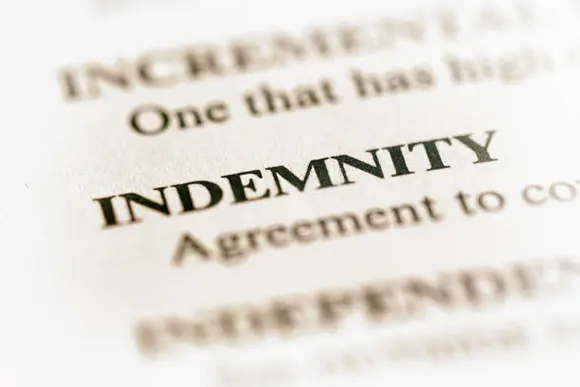Finding Gold in Your Own Backyard
Published on 25 July 2020, 03:00:04 PM
Finding gold in your own backyard! It’s a gem of a property. The title says it has minerals on it. Before you start panning for gold, get the facts on the riches beneath your feet.
Quick Read
What would happen if you found gold in your backyard?
Is gold panning legal in Ontario?
Can miners stake a claim on your property?
Areas exempted from gold mining claims
Can you stop prospectors from mining your land?
Can mining companies stake a claim?
Do you get compensated for damages?
How deep do you have to dig to find gold?
How do you find out if your property has gold?

Mineral Rights on Ontario Property Titles
The truth is finding gold in your own backyard doesn’t mean you’ve struck it rich. Gold deposits belong to whoever has mineral rights to your property. That’s usually the Crown or Province of Ontario. And unless you own surface rights to your property, so do above-ground minerals like clay, sand, or gravel. While the Crown or Province can extract and use the minerals, chances are they won’t. Neither will you.
Finding Buried Treasure
You strike the motherlode — buried treasure in your own backyard. But is it yours? Not unless the rightful owner abandoned it. Buried gold like bullion, coins, or jewellery belongs to the rightful owner (usually the person who buried it). If the owner can’t be found or has legally abandoned their claim to the property, the gold is yours. A case of finders keepers and abandoned buried treasure. When in doubt, talk to a real estate lawyer about finders keepers’ laws.
Is Gold Panning in Your Yard Legal?
Yes and no. Panning for gold as a hobby is legal, but commercial ventures aren’t. But don’t get your hopes up unless your property is somewhere in northern Ontario. Gold Mining and Prospecting in Ontario Canada.
Can Prospectors Pursue Your Mineral Riches?
They can and have. Most Crown land and private property where the Crown owns the mineral rights can be prospected for minerals. Notice is recommended, but mining claims have been upheld where property owners weren’t consulted. A property deed stating you own “surface rights only” could be a clue your newly purchased acreage has been staked without you knowing it. Fortunately, unless exempted, some properties and areas are strictly off limits.
‘No Go’ Areas for Mining Claims
As long as your property is in a townsite or registered residential subdivision, you are likely safe from prospectors finding gold in your own backyard. Ditto parts of acreages where your house, dwellings, or outhouse stand. Your crops, gardens, nurseries,and such are off limits. So are springs, reservoirs, dams, or waterworks.

Is it a Mining Claim or Mining Lease?
Mining claims give owners exclusive rights to explore but not remove or sell minerals from your land. A claim is converted to a lease if the prospector wants to extract and sell the minerals. A survey must be completed first and the prospector needs permission to use the surface rights. That’s easy enough if the land is Crown owned, since the rights accompany the lease. When a prospector is intent on finding gold in your own backyard, they need your agreement and must compensate you for any damages.
Can You Stop a Prospector Finding Gold in Your Own Backyard?
It depends. Likely not, if the prospector staked an exploratory claim on a non-exempt property. Maybe, if they intrude on your homesite while exploring. Either way, get legal advice to protect your rights. Bring photos to support your complaint.
Mining Companies and Your Land
It gets more complicated if a mining operation is involved. The surface rights to your land could be leased to the operator by the province. The Ontario Mining Act can permit operators to construct ditches, install pipes, discharge or divert river water, pass through or over your land and water, or build roads. You could get compensation, but there goes your peace of mind.

Claiming Compensation for Mining Damages
Right you are, mining is disruptive. Compensation for damages is not only possible, but it can include:
- physical disturbances to your property
- the right of peaceable possession
- the right to decide which trees are cut down
- rental income losses
- and more.
The more evidence you have the better.
What to Do if a Miner Moves In
You’re enjoying your place in the sun when a mineral owner writes or phones to say they have plans for finding gold in your own backyard. Call an Axess Law real estate lawyer. They can check who actually owns the mineral rights or refer you to a mining expert. Lawyers can also find out who, if anyone, owns royalties to minerals being extracted. A lawyer’s advice on how to minimize the impact on your land is useful. Miners must comply with restrictions and regulations on mineral extraction and clean up. Your lawyer can go over all of that with you.
What Would Happen If You Found Gold in Your Backyard
By now, you’re thinking maybe you’ll stake your own claim to protect your paradise from prospectors. It’s true you could find oil, gas, gypsum, lime or nickel under the ground. If your property deed includes surface rights, you might also mine above-ground minerals like clay, gravel or sand. But unless you are actively mining your property, don’t bother. Your claim will just be cancelled.
Digging for Gold
Look instead for gold veins, or gold deposits in granite and mineral-bearing belts in places like Lake of the Woods, rather than regular dirt. To get a prospector’s licence or register a mining claim, go to the Mining Act Awareness Program (MAAP). Creating a user account. Chatting with other prospectors. insert link here to Northwestern Ontario Prospectors Association.
How to Find Out If Your Property Has Gold
Next time you buy a homesite or sell property in Ontario, check for active mining claims not registered on the property title. An Ontario real estate lawyer can find encumbrances, liens, and other claims when you buy land or sell an acreage. It’s the best way to protect your property from becoming a gold mine for someone else.
Why You Need a Real Estate Lawyer
Axess Law answers your questions about mineral titles, and other property title encumbrances, or refers you to a real estate lawyer who specializes in this area. Our experienced real estate lawyers search title to properties for legal or financial claims that might delay or stop your purchase.
Affordable Real Estate Lawyers, Anywhere You Are
Access lawyers for less in Greater Toronto Area, Ottawa, or anywhere in Ontario when you buy, sell, or transfer property. Axess Law’s flat fee real estate lawyers are affordable, and our rates are all inclusive (excluding taxes, disbursements, and third-party charges). Axess Law offers you only the legal services you absolutely need. Your final invoice includes no surprises or hidden charges. Your itemized statement of adjustments is explained when we deliver it, and we answer any questions you have about it.
Make Appointments by Phone or Online
Video conference with a virtual real estate lawyer anywhere in Ontario, 7 days a week. Day or evening appointments are available by calling toll free to 1-877-552-9377, 647-479-0118 in Greater Toronto Area. Use our easy booking form to make appointments online.
Click here to learn more about Axess Law’s real estate law services.





